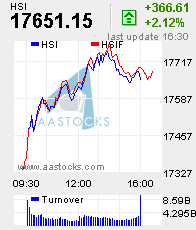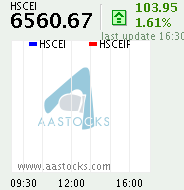Chinese Govt Curbs Rapid Price Rises
"China has imposed temporary measures to curb rapid price increases in the run-up to the lunar New Year early next month. The National Development and Reform Commission said producers of grain, pork, milk, eggs and liquefied natural gas would have to seek government approval before they can put up their prices. The Commission said the measure was aimed at curbing unreasonable price increases. The Commission noted that the price of pork recently soared 43%. "
The empirical evidences always strongly show that equity values are negatively affected by price control policy in the short term and positively affected when existing price control policy is relaxed or removed in the long term under the prevailing monetary policy. Although we affectionately hope that it will not happen, the cruel outcome usually disappoints us. The unintended consequences of price control are undesirable. Economists generally accept the view that inflation is ultimately a monetary phenomenon though it is difficult to discriminate empirically between views on inflation-output trade-offs. I think the success of price stabilization much depends on the perception that whether the costs of curbing inflation is acceptable or not by the whole society. It is because each successful price curb is usually accompanied by a temporary drop in output.
The main cause of inflation in China is the rapid growth in RMB money supply. China's foreign trade surplus increased by 50% to 262 billion US dollars and foreign exchange reserves amounted to 1.5 trillion US dollars. Her Gross Domestic Product(GDP) value increased by about 11% with the Money supply M1 and M2 increased by 21% and 16.72% respectively by the end of December 2007 . Perhaps we may say China's inflation is imported from foreign trading partners rather created by herself due to a huge BOP surplus and I believe that the only solution lies on the proper pricing in the foreign exchange value of RMB with other currencies though in the voice of opposing such action.
It is a dilemma as stated by the game theory. However, we can reach an optimal equilibrium after due consideration of the cost of the trade-offs. For a sustained price control policy will only restrain the supply of goods. On the contrary, prevailing inflation will eventually worsen our livelihood as illustrated by the nowadays hardship faced by the people of Venezuela. They are now facing the problem of food and other material shortages as a consequence of the price-freezing policy implemented in previous years.

Also in Chinese at http://wongtc.blogspot.com/2008/01/blog-post.html
The empirical evidences always strongly show that equity values are negatively affected by price control policy in the short term and positively affected when existing price control policy is relaxed or removed in the long term under the prevailing monetary policy. Although we affectionately hope that it will not happen, the cruel outcome usually disappoints us. The unintended consequences of price control are undesirable. Economists generally accept the view that inflation is ultimately a monetary phenomenon though it is difficult to discriminate empirically between views on inflation-output trade-offs. I think the success of price stabilization much depends on the perception that whether the costs of curbing inflation is acceptable or not by the whole society. It is because each successful price curb is usually accompanied by a temporary drop in output.
The main cause of inflation in China is the rapid growth in RMB money supply. China's foreign trade surplus increased by 50% to 262 billion US dollars and foreign exchange reserves amounted to 1.5 trillion US dollars. Her Gross Domestic Product(GDP) value increased by about 11% with the Money supply M1 and M2 increased by 21% and 16.72% respectively by the end of December 2007 . Perhaps we may say China's inflation is imported from foreign trading partners rather created by herself due to a huge BOP surplus and I believe that the only solution lies on the proper pricing in the foreign exchange value of RMB with other currencies though in the voice of opposing such action.
It is a dilemma as stated by the game theory. However, we can reach an optimal equilibrium after due consideration of the cost of the trade-offs. For a sustained price control policy will only restrain the supply of goods. On the contrary, prevailing inflation will eventually worsen our livelihood as illustrated by the nowadays hardship faced by the people of Venezuela. They are now facing the problem of food and other material shortages as a consequence of the price-freezing policy implemented in previous years.

Also in Chinese at http://wongtc.blogspot.com/2008/01/blog-post.html











